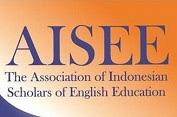ENHANCING LISTENING SKILLS THROUGH STORY-BASED ACTIVITIES FOR VOCATIONAL STUDENTS IN YOGYAKARTA
DOI:
https://doi.org/10.36706/jele.v11i2.39Keywords:
Educational activities, English language for Vocational, Listening skills , Story-based learningAbstract
This research investigates the development of story-based listening activities for vocational students in Yogyakarta using the ADDIE model. The study involved sixty-six vocational students and employed qualitative and quantitative methods. The focus on vocational students is crucial because their learning needs are centred around acquiring practical, career-related language skills. Story-based activities and research instruments were designed to address real-world scenarios relevant to vocational education, ensuring the learning experience is both engaging and applicable to their future careers. Qualitative data from interviews, classroom observations, and open-ended questionnaires revealed that students found story-based activities engaging and motivating. Quantitative data from pre- and post implementation questionnaires and tests showed significant improvements in listening comprehension, with 63.6% of students reporting increased confidence in understanding native speakers. The story-based approach provided a practical and enjoyable learning experience, making it particularly suitable for vocational high school students who benefit from active and contextually relevant learning methods.
References
Abdollahpour, S., & Maleki, A. (2012). The role of storytelling in improving listening comprehension in an EFL context. Language Education in Asia, 3(2), 184-194.
Aly, O. F. (2021). The effectiveness of using the storytelling approach in developing some listening skills in English among English majors. Journal of Faculty of Education, Beni-Suef University, 31(2), 715-734.
Brown, H. D. (2007). Principle of Language Learning and Teaching. In Encyclopedia of the Sciences of Learning (pp. 1743–1745).
Bruner, J. (1991). Bruner JS. The narrative construction of reality. Critical Inquiry. 1991;17:1-21. Critical https://about.jstor.org/terms
Burns, A. (2010). Doing Action Research in English Language Teaching. 2014(2010), 2014.
Cameron, K., Mora, C., Leutscher, T., & Calarco, M. (2011). Effects of positive practices on organizational effectiveness. Journal of Applied Behavioral Science, 47(3), 266–308. https://doi.org/10.1177/0021886310395514
David, N. (2010). Practical English Language Teaching International Edition 1 st Edition. The International Journal of Research in Teacher Education, 1(1), 65–72. http://ijrte.eab.org.tr/1/1/ayilmaz_stekir.pdf
European states. In The Palgrave Handbook of Economics and Language. https://doi.org/10.1007/978-1-137-32505-1
Ginting, D. (2023). THE EFFECTS OF STORYTELLING TEACHING STYLE ON ELEMENTARY STUDENTS’ READING COMPREHENSION. December. https://doi.org/10.31932/jees.v6i2.2472
Harmer. (2007). The Practice of English (p. 448). Pearson Longman.
Pemberton, R. (2004). Teaching and Researching Listening. In System (Vol. 32, Issue 1). https://doi.org/10.1016/j.system.2003.11.004
Moosazadeh, M., & Motallebzadeh, K. (2017). Improving Iranian Efl Learners' Vocabulary Retention and Attitudes towards English through Digital Story Telling: A Task-Based Approach. Modern Journal of Language Teaching Methods, 7, 207.
Sadeghi, B., Kashanian, N. M., Maleki, A., & Haghdoost, A. (2013). English language proficiency as a predictor of academic achievement among medical students in Iran. Theory and Practice in Language Studies, 3(12), 2315–2321. https://doi.org/10.4304/tpls.3.12.2315-2321
Smeda, N., Dakich, E., & Sharda, N. (2014). The effectiveness of digital storytelling in the classrooms: a comprehensive study. Smart Learning Environments, 1(1), 1–21. https://doi.org/10.1186/s40561-014-0006-3
Tomlinson, C. A., Brighton, C., Hertberg, H., Callahan, C. M., Moon, T. R., Brimijoin, K., Conover, L. A., & Reynolds, T. (2003). Differentiating instruction in response to student readiness, interest, and learning profile in academically diverse classrooms: A review of literature. Journal for the Education of the Gifted, https://doi.org/10.1177/016235320302700203 27(2–3), 119–145.
Wright, S. (2016). Language choices: Political and economic factors in three
Thi Lan Anh, H. ., Dao, T. H. V., & Anh Dung, P. (2021). The Effectiveness of Story-based Teaching Technique on EFL Adult Learners’ Vocabulary Retention. Journal of English Language Teaching and Applied Linguistics, 3(4), 32-40. https://doi.org/10.32996/jeltal.2021.3.4.5
Uzun, L. (2022). Enhancing foreign language learners' listening skills through technology: A sample lesson. Journal of Language and Education, 8(3), 202-218.
Downloads
Published
Issue
Section
License
Copyright (c) 2025 The Journal of English Literacy Education: The Teaching and Learning of English as A Foreign Language

This work is licensed under a Creative Commons Attribution-ShareAlike 4.0 International License.













